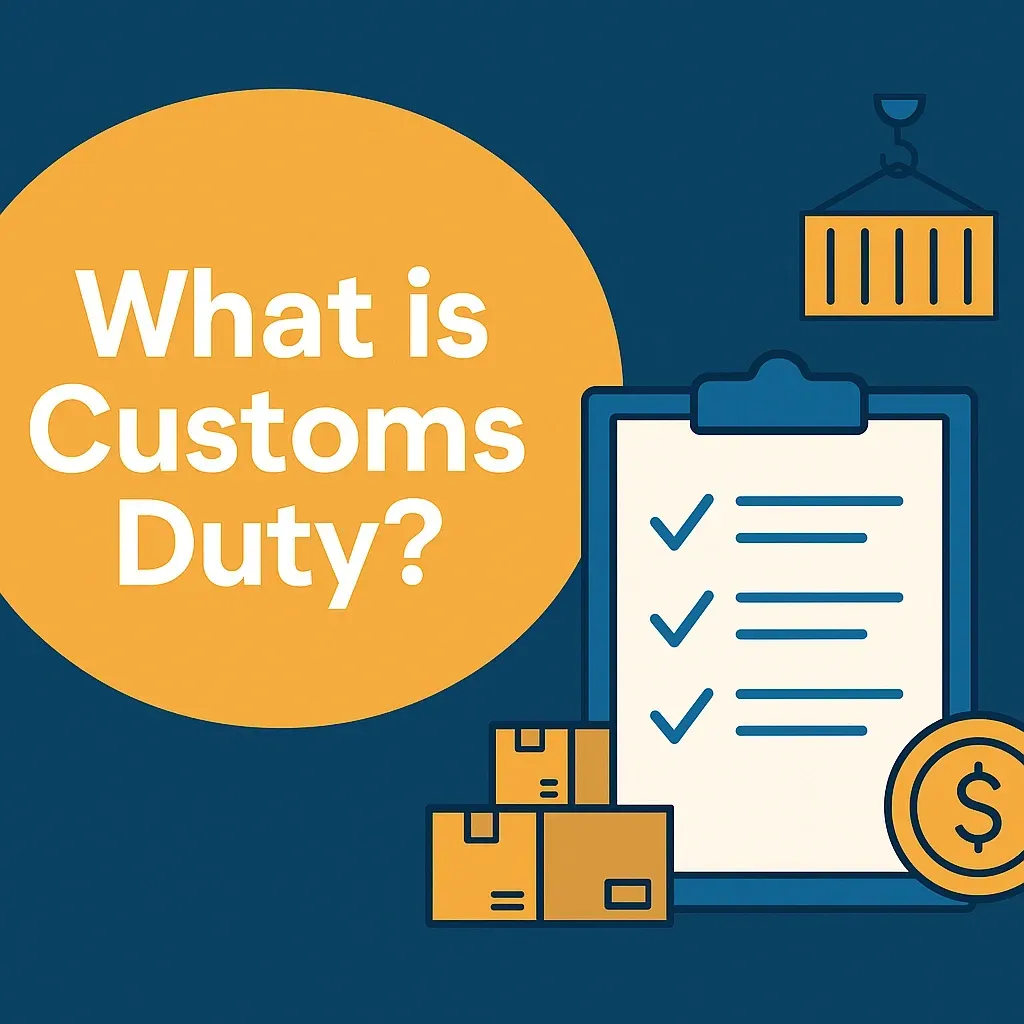What is Custom Duty? Meaning, Types, and How It Works
Master India's custom duty process - from HS code classification to online payment via ICEGATE. Essential reading for international traders.

For individuals and businesses involved in global trade, knowing “what is custom duty” is essential. With the growth of worldwide trading, paying customs duty played a crucial role in the import and export business. Here is a detailed overview of what customs duty is, the types of customs duty and the customs duty process in India in 2025.
What is Custom Duty?
A customs duty refers to a type of tax levied on the products taken through the border between diverse nations. Customs duty also constitutes two really important uses: revenue generation and control of importation and exportation of goods. The definition of custom duty is important for companies, like those exploiting Eximpe services, to comply with and control costs.
Types of Custom Duty
India imposes different customs duties, which are intended to carry out one or the other economic or regulatory functions. These are the main types of custom duties that you are supposed to know:
- Basic Customs Duty (BCD): This is the standard duty levied on other than everyday goods, most of which come in at between 5 and 40 per cent, depending on the product and its source.
- Countervailing Duty (CVD): A charge to balance subsidies offered to exporting countries so that domestic producers can achieve a level playing market.
- Special Additional Duty (SAD): Impose to some imports to balance local taxes such as VAT.
- Anti-Dumping Duty: Used on goods imported at less than their market price in order to avoid underpricing local industries.
- Safeguard Duty: Paid for a limited time to secure domestic industries from sudden increases in imports.
- Education Cess and Higher Education Cess: Extra accruals on Customs duties are specifically set aside to publicize educational projects.
- National Calamity Contingent Duty (NCCD): Used to collect money for natural disaster relief and preparedness.
- Social Welfare Surcharge: It is 10 per cent of the total customs duty that helps to finance multiple welfare schemes.
Understanding the types of customs duty is essential for accurate customs duty payment and compliance.
How Custom Duty Works
The process of custom duty payment involves several steps to ensure goods are legally imported or exported:
- Declaration: Customs impose a necessity for importers/exporters to declare goods to customs indicating value, quantity, and nature.
- Classification: Products fall under the Harmonized System (HS), and HS codes allocate Begin’s tariff schedule, and duty on products is also liable to change.
- Valuation: CV (customs value) is normally based upon CIF (cost , insurance and freight).
- Calculation: Customs administration charges a duty based on the CN code, value, and relevant duty rates.
- Payment: Duties are made, and sometimes online, through IT applications like IICEGATE before goods clear entry and exit.
- Clearance: After payment, customs provides a document — known as clearance. History from there proves that goods are free to get to their final destination.
Why Custom Duty Matters for Your Business
For companies that sell Eximpe, keeping up with customs duty and its varieties results in easier international deals, more accurate cost estimates and complete legal conformity. Taking advantage of digital platforms to pay customs duties simplifies the task and cuts down on both human error and time.
Conclusion
Meaning of Custom Duty- there is more to custom duty than just tax; it is a major form of protection for the economy and a major source of revenue for the government. Through knowledge of the classes of custom duty and how custom duty payment works, businesses can ensure they trade with ease and certainty throughout 2025 and beyond.
FAQs
What is customs duty, and why is it charged?
Customs duty is a tax imposed on goods when they are imported into or exported from India, serving both as a revenue source for the government and as a tool to regulate international trade and protect domestic industries.
What are the main types of customs duties in India?
The main types include Basic Customs Duty (BCD), Countervailing Duty (CVD), Special Additional Duty (SAD), Anti-Dumping Duty, Safeguard Duty, Social Welfare Surcharge, and others, each serving different regulatory or protective purposes.
How is customs duty calculated for imports?
Customs duty is calculated based on the product’s classification (HS code), customs value (usually CIF – cost, insurance, and freight), and the applicable duty rates as per the Customs Tariff Act.
Can customs duty be paid online, and what is the process?
Yes, customs duty can be paid online via the ICEGATE portal by logging in with your Import/Export code, selecting unpaid challans, choosing a payment method, and completing the transaction through your bank.
Why is understanding customs duty important for businesses using Eximpe?
Knowing customs duty types and processes helps businesses estimate costs accurately, ensure legal compliance, and streamline international trade operations, reducing delays and errors in cross-border transactions.